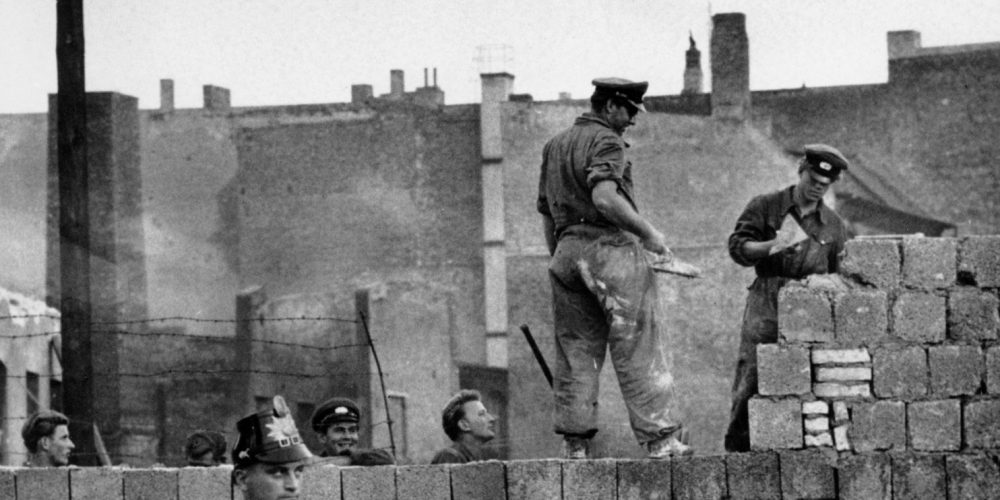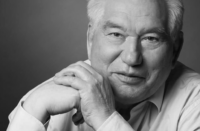“The bourgeoisie turns everything into a commodity, hence also the writing of history. It is part of its being, of its condition for existence, to falsify all goods: it falsified the writing of history. And the best-paid historiography is that which is best falsified for the purposes of the bourgeoisie.”
Frederick Engels, “Notes for a History of Ireland” (1869–1870).
This year will be the thirtieth anniversary of the destruction of the Berlin Wall. No doubt this will be accompanied by an ideological onslaught by the capitalist media on the German Democratic Republic, with a few obligatory mentions of the Stasi thrown in.
It will not be necessary to inform the readers of Socialist Voice that this fawning over “freedom and democracy” is laughable, given that the same voices have the gall to portray themselves as democrats, despite their support for the neo-Nazis and other fascists in government in Ukraine, Hungary and Poland and their support for the fascist Bolsonaro in Brazil and his counterparts in the Venezuelan opposition.
However, it is worth pointing out some historical facts on the GDR from a working-class viewpoint.
The creation of the GDR was a reaction to the creation of the Federal Republic of Germany in 1949, after the Western-controlled sectors of Berlin introduced a separate currency so as to undermine the economic stability of the Eastern side. Contrary to what is taught in the capitalist education system, the Soviet Union and its allies never wanted a partitioned Germany, instead favouring a unified but neutral state. But in 1952 the Soviet proposals for German reunification were rejected by the West, under its chancellor, Konrad Adenauer. West Germany was later armed and financed by the United States.
The GDR was created in an area that composed only a third of German territory, had little heavy industry, and had suffered immense damage in the war, with a population who were indoctrinated with Nazi propaganda and threats of Jews taking over. Up to 30 per cent of industry in the east was given to the USSR as reparations for the war, which had cost 26 million Soviet lives.
By necessity, the new ruling party of the GDR, the Socialist Unity Party of Germany (SED), was unashamedly a party of veteran anti-fascists, some of whom were Jewish. Otto Grotewohl, the first prime minister of the GDR, had been imprisoned by the Nazis several times. Walter Ulbricht was a former joiner; his successor, Erich Honecker, was a former roofer who had spent ten years in a Nazi prison.
Albert Norden, a member of the Central Committee of the SED, was the son of a rabbi. Herman Axen was from a Jewish family and had survived internment in both Auschwitz and Buchenwald. Hilde Benjamin, the GDR’s first woman minister, was also a Jew, who had lost her right to practise law under the Nazis, while her husband was murdered in Mauthausen slave-labour camp.
In sharp contrast to this, the West German state was filled with former Nazis. Hans Globke was a Nazi who not only worked under Adolf Eichmann but jointly wrote the infamous Nuremberg Laws and later became adviser to Adenauer.
The West offered financial incentives to citizens of the East should they move to the West. Of course these incentives, such as housing and interest-free loans, were not offered to all but only to those among the professional classes. This resulted in a “brain drain,” which massively affected the GDR. This, along with acts of sabotage and blatant espionage by the likes of the CIA, BND (the West German secret service), and MI6, led the East German state to close its borders. The result was the “anti-fascist protection barrier,” erected in 1961.
The wall came down in 1989, and not long afterwards the GDR was annexed by the West.
The Berlin Wall may not be a glamorous historical topic for communists, but we should always approach history in a principled way, and see what we can learn from it. Border walls are seldom a nice thing, but we should always ask, Who benefits? Who benefits from the walls in Palestine? Who benefits from the peace walls in Belfast, keeping our class divided?
And we must also ask, Who benefited from the GDR? Certainly the working class did, as did women. It’s not surprising that those in the East continue to say in poll after poll that they regret the fall of their state. They had a universal health service, universal education and public housing, more theatres than any other state on earth, a collective sense of belonging that is alien to anybody in a capitalist society, and equality for women, including child care and access to abortion, that was unashamedly working-class feminism. All this while the GDR kept up its international obligations, providing support for revolutionaries in Mozambique, Angola, and elsewhere.
Considering the hand the GDR leadership was dealt, and its anti-fascist credentials, we should keep an open mind on the more unattractive aspects and always approach things with an open mind.






